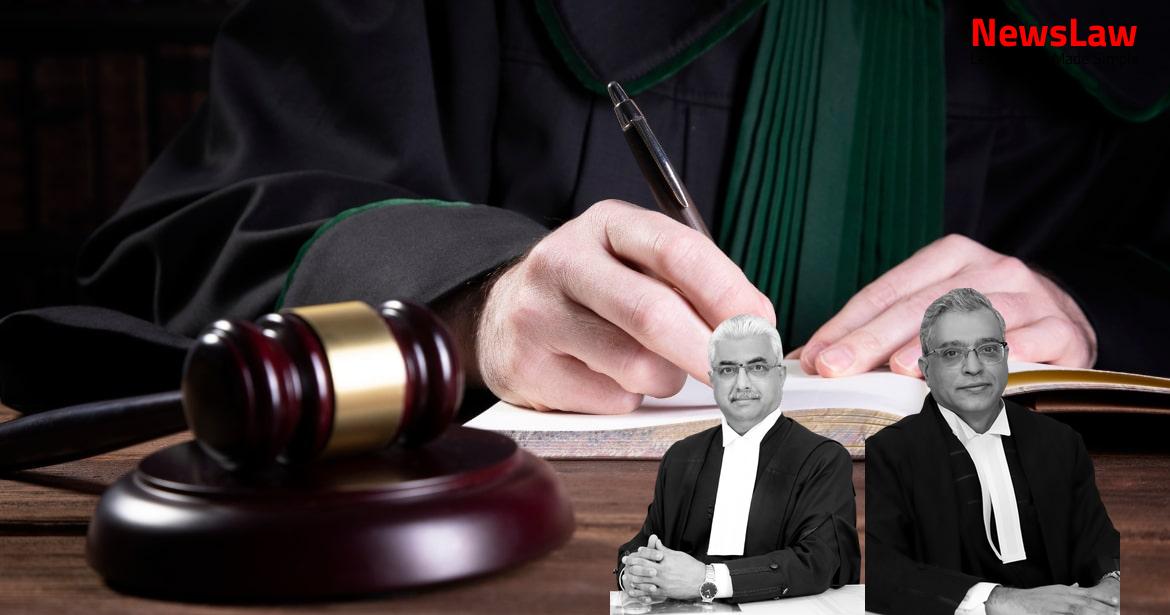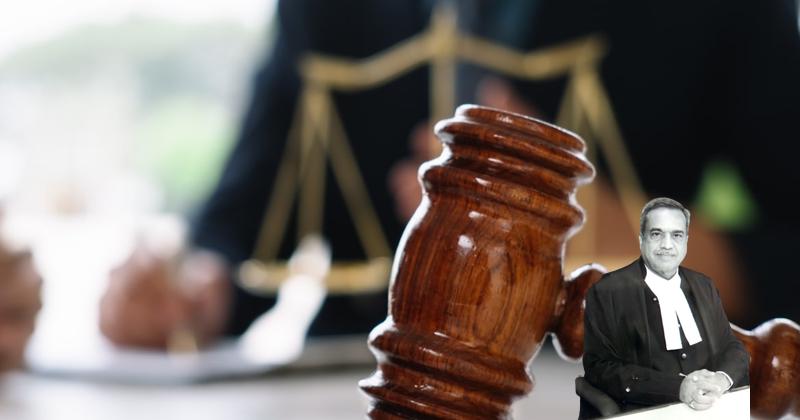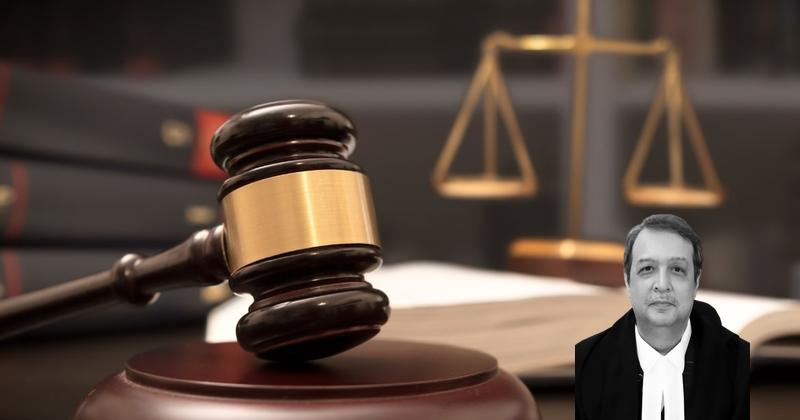In a recent landmark judgment by the Supreme Court of India, the case of State of M.P. v. Pernod Ricard India Ltd. (Appellant) has brought to light the complexities surrounding the interpretation of substituted rules. The dispute revolves around whether the old rule or the substituted rule should apply in the imposition of penalties. The State of M.P. has argued for the continued application of the repealed rule, citing the Madhya Pradesh General Clauses Act, 1957. On the other hand, the Appellant contends that the substitution of rules entails the repeal of the existing provision. This case delves into the intricacies of legal interpretation and the impact of legislative amendments on penalty imposition.
Facts
- The Leave has been granted for the specific part (FAC) of the judgment.
- The original names of the parties involved should be used instead of generic terms like Respondent No. 1 or Petitioner No. 1.
- The Division Bench of the High Court reversed the decision of the Single Judge
- The reversal was based on the grounds that the rule in place during the year of the license must apply
- The license in question was granted for one year
Also Read: Case Analysis: National Consumer Disputes Redressal Commission vs. Promotional Trailer Deception
Issue
- The main issue at hand is the applicability of the relevant rule for the imposition of penalty.
- The question is whether the rule in place when the violation occurred in 2009-10 or the rule substituted in 2011 should be applied.
- The appellant argues for the application of the substituted rule which lowered the penalty amount.
- However, both the statutory authorities and the High Court’s Division 2 Bench rejected this argument and upheld the imposition of a higher penalty under the old rule.
Arguments
- Mr. Saurabh Mishra, A.A.G. for the State, argued that the State of M.P. can continue to apply the repealed Rule for the transaction of 2009-2010 under the Madhya Pradesh General Clauses Act, 1957, specifically referring to Section 10.
- Section 10 of the Act states the effects of repeal, highlighting that the repeal of any enactment should not revive anything not in force or affect the previous operation of any enactment unless a different intention appears.
- Mr. Pratap Venugopal, Ld. Senior Advocate for the appellant, contended that the effect of substitution is to repeal the existing provision entirely and enforce the newly substituted provision in its place.
- The ARG_RESPONDENT argues that even for incidents that occurred under the old Rule, the substituted Rule should be applied.
- The demand notice dated 22.11.2011 seeking payment of penalties under the old Rule is considered illegal by the ARG_RESPONDENT.
Also Read: Arvind Singh vs. College Romance: Obscenity in Web-series Case
Analysis
- The legislative authorization enabling the executive to make rules prospectively or retrospectively is crucial.
- The subject and context guide the conclusion to not extend the effect of repeal in Section 10 of the MP General Clauses Act, 1957 to the repealed Rule 19.
- The purpose of the amendment is to achieve a proper balance between crime and punishment or the offence and penalty.
- Rule 19, which provides for penalties for contravention of any of the rules or provision of the Act, does not subserve the purpose and object of the amendment.
- The principle governing subordinate legislation is different as it is determined by the empowerment of the parent act.
- Section 31 of the M.P. General Clauses Act, 1957, relating to the extension of its provisions to subordinate legislation, is distinct and ambitious.
- The operation of a subordinate legislation is determined by the empowerment of the parent act.
- The interpretation of statutes or definitions in interpretation clauses are internal aids of construction of a statute.
- The application of the repealed Rule to the liability incurred by the appellant during the license year 2009-2010 is allowed, subject to statutory prescriptions.
- The single Judge’s view that the amendment by way of substitution repeals the existing law is not agreed upon.
- The process of identifying a crime and prescribing an appropriate punishment is a complex subject that the State has to handle while making and enforcing rules.
- The amendment by way of substitution in 2011 is intended to reduce the quantum of penalty for better administration and regulation of foreign liquor.
- Section 62 of the Act empowers the State Government to make rules for carrying out the provisions of the Act.
- Rules made under Section 62(2)(a), (b), (c), (e), (f), (i), (l), and (m) must be made after previous publication unless the State Government considers immediate implementation necessary.
- Section 63 allows for rules made under the Act to operate from the specified date of publication or another specified date.
- The MP General Clauses Act, Section 31 applies to ordinances or regulations in relation to Madhya Pradesh Acts, not subordinate legislations.
- Rule 19 of the Act deals with penalties, and any deficiencies exceeding permissible limits result in penalty imposition.
- No action was taken during the 2009-2010 license year, and Rule 19 was substituted by an amendment on March 29, 2011.
- The substituted Rule 19 introduced changes to penalty imposition not exceeding the duty payable on foreign liquor at that time.
- The Act does not provide for continued application of repealed provisions to rights and liabilities accrued during their validity.
- The relevant parts of the rules and amendments mentioned in the judgment pertain to penalties and permissible limits of losses in the liquor trade.
- The process of substitution consists of two steps – first, the old rule is repealed, and next, a new rule is brought into existence in its place.
- Substitution is distinguished from supersession or a mere repeal of an existing provision.
- The substitution of one text for the other pre-existing text is a well-recognized practice in legislative drafting.
- The effect of substitution is to delete the old provision and make the new provision operative.
- The standard principles in interpreting statutes must be applied to any enactment under consideration.
- The qualification ‘unless there is anything repugnant in the subject or context’ in a definition implies the need to examine the context and collocation in light of the legislative intent.
- Great artistry and careful consideration are required in interpreting statutes before accepting, rejecting, or modifying any theory or principle.
- Authorities like West U.P. Sugar Mills Assn., State of Rajasthan v. Mangilal Pindwal, and A.L.V.R.S.T. Veerappa Chettiar support the concept of substitution in legislative amendments.
- When a subsequent Act amends an earlier one to incorporate itself, the earlier Act must be construed with the altered words as if written into it.
- Subordinate legislation reflects the executive’s understanding of the primary legislation, with the process of substitution involving the old rule ceasing to exist and the new rule coming into place.
- The bar of Article 20(1) does not apply to imposing a penalty greater than the one in force at the time of the offence.
- Simple and plain understanding of laws and their purposes is crucial.
- Levy of penalty is considered substantive law and cannot operate retrospectively.
- The substituted penalty, reducing the penalty from four times the duty to the value of the duty, does not mollify the law’s rigour.
Decision
- Penalty to be imposed on the appellants will be on the basis of Rule 19 as substituted on 29.03.2011.
- No order as to costs to be made.
Case Title: PERNOD RICARD INDIA (P) LTD. Vs. THE STATE OF MADHYA PRADESH (2024 INSC 327)
Case Number: C.A. No.-005062-005099 / 2024



